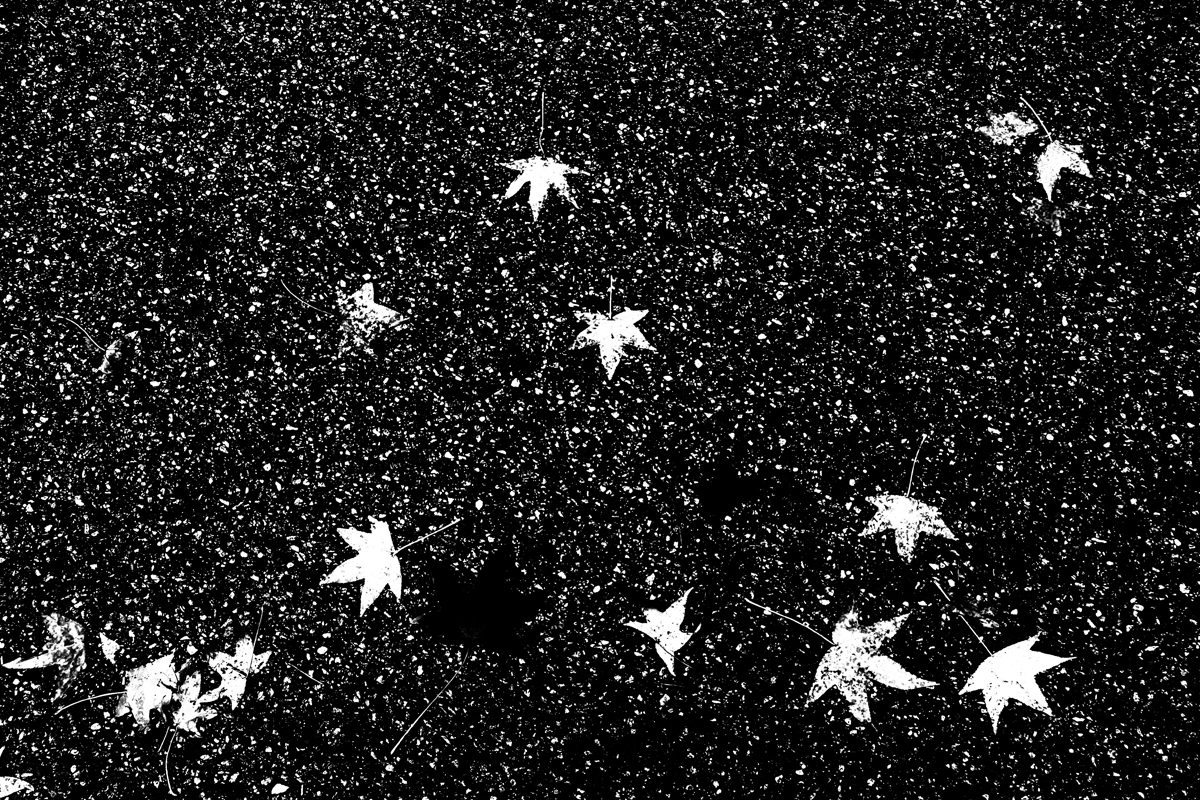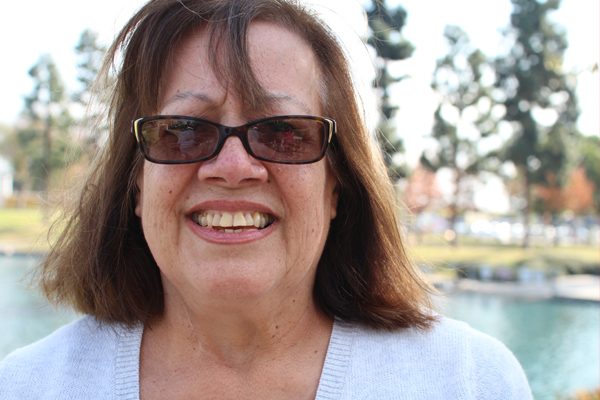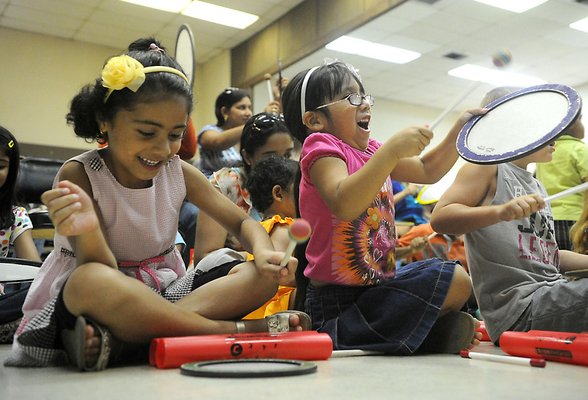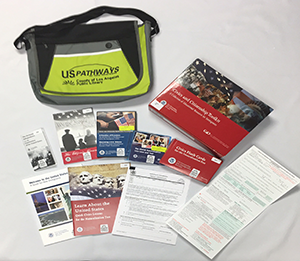Taxi Dancer

In 1973, I was a single mother of three small children. I was working in a wig distribution warehouse in downtown LA packing wigs in boxes that were sold at major department stores. I was always looking for a better paying job. My co-worker suggested I get a job where she worked nights. She was a taxi dancer. I had no idea what a taxi dancer was, but she said the money was good because you also got tipped by some of the customers, so I went that night to see about the job.
In 1943 two brothers, Ben and Edward Fenton, a couple of Los Angeles lawyers who were visiting San Francisco, went into a dance hall. These halls had been in San Francisco since the Gold Rush days. Women danced with men for a dime a minute and were called taxi dancers. Business was good and when the Fenton brothers returned home they opened up the first taxi dance ballroom in Los Angeles known as Roseland Roof. It was at 9th and Spring streets. Soon, they opened up another one at 5th and Main. That one was called Dreamland. This is where I went for my interview.
In the early 70’s downtown, Main Street had a seedy, dire, uneasy feel. It was a section of Skid Row filled with drug addicts, alcoholics and prostitutes. There were three bars on one block. One of the bars was next to Dreamland. It was a small dive that smelled like urine. Next to it was another that was loud and rowdy – Jalisco Bar. The third one was closer to 5th Street. There was just one place to get something to eat; a popular chicken place called Cy’s Chicken, two doors down from Dreamland. The taxi dancers would go there before work.
I entered the dance hall from the street and walked up a flight of stairs. At the top of the stairs, inside the dance hall, was an old-fashioned ticket booth, like the ones outside movie theaters. A matronly cashier was selling tickets. I asked her who Bob was and that I had an appointment with him.
The ballroom was on the second story of a very old building. The dance floor was dimly lit with strings of little white lights hanging from the ceiling. Next to the ticket booth were a couple pool tables and a nonalcoholic bar that served sodas, tea, coffee, sandwiches and candy. In the far corner of the dance floor was a sign that read NO LEWD BEHAVIOR. Toward the back were small tables and chairs for two.
Three leather benches faced the ticket booth. Here sat the girls, on display for the customers. They were laughing and talking and seemed much at ease. I watched as the men approached the women and asked them to dance. The women stood and walked over to a clock next to the ticket booth and punched a time card, then walked on to the dance floor. The Rolling Stones were playing on the juke box, yet though the music was fast-paced the couples on the dance floor were slow dancing, barely moving. The whole time I was waiting for my interview no one ever picked up the pace to match the music. Half the couples were openly grinding heavily with no shame whatsoever. I don’t know what the bouncer’s job was, but he never interfered.
Bob, the manager, was a stocky, balding, middle-aged white guy. His office consisted of old furniture. He had no pictures on the wall, nothing personal. He didn’t ask me many questions. Instead, he explained the rules: no prostitution and no drugs or drinking. He said that sometimes the cops came in wearing plainclothes, asking questions about the girls, and trying to find out which ones were prostituting after hours. Yet it was cops, he said, who left with the girls when the night was over. He asked if I knew how to handle men.
“I guess,” I said.
He told me I had to go to the police department to get fingerprinted and photographed. I went to LAPD and started working the following night.
A new girl was always the most popular among the customers for her first couple of weeks at Dreamland. Because most of the girls build up their clientele over a period of time they would let you know that you were dancing with their customer and didn’t appreciate it. Instead, you built up your own customers. This wasn’t hard to do because a lot of the men came in every night.
A lot of jobs need a skill. Here the skill was manipulation. The men who frequented these dance halls were mostly unattractive and lonely. They were Latinos, African Americans, American Indians, whites, Asians and a lot of Filipinos. They were alcoholics, drug addicts; they were married or single. Dancing with these men five nights a week was not an easy job. Most of them were forty years old and older and I, like most of the girls, was under 30. So, before some of us had to go out on the dance floor, we would sneak a drink or smoke some pot in the dressing room, blowing the smoke out the open windows.
More than half the men who came in wanted to dance so they could get close enough to you to grind. I would be dancing with a customer and he’d see another couple grinding and ask me if I danced like that. I would, but he would have to give me a thirty-five to forty-dollar tip. But I never allowed this kind of person to be one of my regular customers. They disgusted me.
Other patrons were just looking for someone. Some lived in a fantasy and thought I was their girlfriend. It was easy to manipulate these men. At first I would ask them to buy me two or three hours worth of tickets so at the end of the night I could reach a quota I had set for myself. Then I would ask for a twenty- or thirty-dollar tip. This worked if you could pretend for a while that you liked them.
One of my regular customers was a guy by the name of Tony. He was tall and lanky with an overbite like a rabbit. He told me he worked in the psychiatric unit of the General Hospital, but I think he was a patient there. The good thing about having him as a customer was that he preferred to sit and talk than dance and he always bought me extra time.
One evening he came in and asked me if I recognized the address that he had written down on a piece of paper. It was mine. He had followed me home. I told him he knew damn well that it was my address and I took the paper and tore it up and told him never to follow me again or next time I would report him to the authorities.
He still came in. He knew that I no longer wanted to keep him company and that I had other regulars and this bothered him. I told him if he wanted to continue to be my customer I wanted money for a down payment on a car. He gave it to me two nights later. Before the night was over he wanted his money back. He didn’t get it back and I bought a ‘67 Ford Mustang. I never saw him again.
Another of my customers was a Jewish guy by the name of Allen. I never knew any of my customers’ last names and I never told them anything personal about myself. He told me he was a cameraman for some movie studio. He was well groomed and had manicured hands. Allen had a lot of confidence I think because all the girls knew him and a few had had him as a customer for a while. The first time I danced with him he hardly spoke. The next time he came in, two of the dancers, Darlene and Kathy, warned me about him. They told me he was a jerk.
Allen started coming in more often and soon became one of my patrons. He was always a gentleman, never danced fast, but never got fresh with me. One night I went to the dressing room for a sweater and when I returned to the dance floor he was dancing with one of his former partners and they were grinding in the corner. Darlene and Kathy took me aside. He wasn’t a cameraman, they told me; he worked for Market Basket, a chain of grocery stores, and was on mental disability. I didn’t care what he did but I wasn’t going to put up with another nut case. I started to ignore him and he got the hint. I heard later that he was dancing with the girls at Roseland Roof.
I never became close friends with any of the girls but on slow nights we would sit around on the benches smoking and drinking tea or soda and talking. Kathy was a white hippie. She had a good attitude and handled the job well. She was tall and thin with long brown hair that she always wore loose. She went to school during the day and danced at night. Most of the girls had kids; not Kathy. She was a nudist. She would spend her weekends at nudist colonies. I was fascinated by this. I asked her questions about it whenever she would bring it up. Was everyone naked? Did people stare at one another? Would the men walk around with erections? Were the people having sex? She always told me I should go just once. I would just laugh at that thought. She always wore short dresses and cowboy boots.
Within a few months it got hard to work there. Having to deal with really lonely men depressed me. I started drinking in the dressing room with the other girls more often. One of the girls that Ben Fenton was dating saw us drinking one night in the dressing room and told on five of us. When Bob called me into his office he told me he knew I was drinking on the job and that I was fired. He then told me he would talk to the Fenton brothers on my behalf. I told him thanks but no thanks. I’d had enough.
Today, the hotels, bars and restaurants at 5th and Main cater to the younger, hipper crowd. The streets look cleaner and safer than they did back then. The New Jalisco Bar is now frequented by 21-year-olds. Cy’s is now The 5 Cent Diner, though it’s still a chicken place. Dreamland went out of business long ago. The space where I worked as a taxi dancer is now occupied by H&H Hothouse Productions, a video studio.
I lost all contact with everyone at Dreamland. My family never knew I worked there. They thought I worked the graveyard shift at a factory.
After I left the dancehall, I worked at a pharmacy and went to night school. Then I got a job with the State of California Department of Health as an entry-level clerical worker in the Social Security Insurance section. For the next thirty-three years I worked for five different state agencies, from Caltrans to the Public Utilities Commission.
I had to formally apply for each job. But I never put Dreamland on a resume.

January 14, 2016










